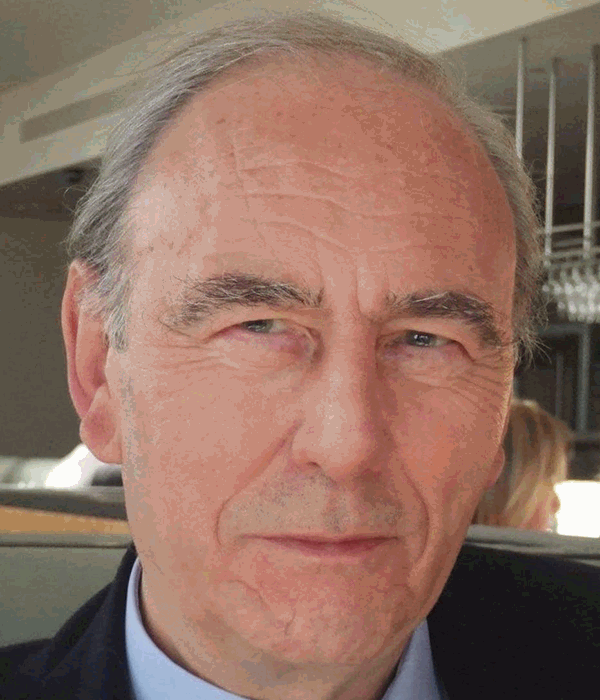
Memories of a generous mentor, inspirational teacher, intellectual giant, and loyal friend.
Robert Cowen died on 13 June 2023 in Belo Horizonte, Brazil. He was born in Darlington, England, on 25 July 1938.
After graduating from the London School of Economics and Political Sciences, Bob trained as a teacher in Trinity College, Dublin, and taught social sciences at a secondary school of East London. He then worked as a lecturer in Furzedown College of Education, as an Assistant Professor in the State University of New York at Buffalo and a Visiting Professor in La Trobe University in Melbourne, before joining the Institute of Education, University of London (1976), from where he had obtained an MA and PhD. He was also a Visiting Professor in the Univesrity of Brasilia and the Catholic University of Leuven, and a Senior Research Fellow of the University of Oxford. At the Institute of Education he met Maria C.M. de Figueiredo whom he deeply loved and married in the 1980s. Bob had two children, Paul and Maura, from his first marriage.
Following the retirement of Brian Holmes in 1985, Bob became the doyen of comparative education studies at the Institute of Education. He ensured that the Institute continued to play a leading role in comparative education globally and to attract students from all over the world. ‘I needed to teach a lot’, he explained, ‘to prevent the abolition of the subject of “comparative education”, in what were hard times for the “foundation subjects”’. His contribution to the continuity of comparative education within the Institute was significant, perpetuating a tradition started by his beloved tutor, Joseph Lauwerys.
Bob was a charismatic teacher. We recall his provocative questions and the captivating intricacy of his lectures that demanded a good grasp of history and society while conveying the message that authority should be exercised with restraint and dignity. We also remember his interventions in seminars offering fresh perspectives, the wine, the friendly but challenging atmosphere in which we were encouraged to test our ideas and learn to accept criticism and defend our work. Bob was also a modest teacher. ‘Each time I lecture’, he noted, ‘I am amazed at the things I haven’t seen before and at the things I can’t explain in a public lecture situation. Probably, I learn best when I’m on my feet in public failing to explain something’.
Bob was also deeply committed to the journal Comparative Education, serving on its Editorial Board from 1991, as well as the Comparative Education Society in Europe (CESE), serving as its Vice President (1981-1983 and 2000-2004) and President (2004-2008). He treated them both as small, non-hierarchical arenas for complex, contentious, difficult, arguments among friends. As a friend, we all knew that we could count on him for support and advice.
In all his professional roles Bob promoted and reshaped comparative education as a distinct field of academic inquiry rather than an interventionist undertaking aimed at advising governments and pursuing international development. He was also an ardent critic of the neo-liberal attempts to redefine knowledge, research and the role of the University. His main scholarly concern was the theoretical condition of comparative education rather than its methodological legitimation as a predictive science. In responding to Basil Bernstein’s remark that ‘comparative education has a low-level theoretical problematique’ and to the ‘mantra’ that the field is merely about ‘things outside schools’, Bob produced some of his most notable contributions to comparative education, including:
‘educational Rosettas’: the compression of political and economic power into educational forms and patterns;
‘transitologies’: the dramatic collapse and reconstruction of societies and state apparatuses and education systems;
‘unit ideas’: praxis, transfer, state, social context, educated identity, educational system, time, and space;
‘transfer, translation, and transformation’, of education policies and practices, and their ‘shape-shifting’, captured in the phrase ‘as it moves it morphs’; and,
‘reading the global’: the entanglement of comparative research with the ways in which the international system and its main actors are understood.
Yet Bob’s priority in all his roles was not one of self-promotion. He disliked academic vanity and rejected the current culture of self-marketing and media exposure. His energy was directed towards educating and inspiring the next generation of scholars who are now academics in many parts of the world. In a talk he gave last year at the GLOBED Winter School in Cyprus he was asked about the future of Comparative Education. He replied ‘I will die a happy man if I have helped to leave the field in safe hands’.
Bob was an inspiring supervisor who demanded rigour but was also kind and supportive with an ability to develop intellectual skills in others. Most of his students consider themselves to be very lucky to have had him as their supervisor, teaching them not only how to write a thesis but that learning to write a thesis was a magical intellectual journey. Some of us remember how stimulating tutorials were with him: he read your work thoroughly and offered detailed and profound feedback, motivating you to think (even) harder. Others recall that Bob helped us become independent thinkers by encouraging us to put the ideas of ‘big’ comparativists aside and develop our own arguments. He continued to advise and support many of us long after our graduation and he did the same for many of our own students and other young scholars whom he did not formally supervise.
The ‘kosmos’ and ‘episteme’ of comparative education will not be the same without him. He is missed, but we were so fortunate to have him touch our lives. His legacy will live on not only through us, his students, colleagues, and friends, and the generation of students we mentor and guide, but also through all of those who corresponded with him, remembering with great fondness his wicked sense of humour and his creative subtlety with language.
